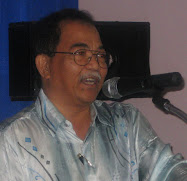The IPPs and why is the Umno elite breast-feeding them?
Written by Maclean Patrick, Malaysia ChronicleMalaysia has 26 Independent Power Producers (IPP) of which 4 are in Sarawak, 6 in Sabah and 16 in peninsula Malaysia. The IPPs supply 60% of the nation’s power needs while the remaining 40% come directly from Tenaga Nasional Berhad.
The IPPs sell electricity to TNB, who then transmit it to the consumer - the citizens of Malaysia and all can turn on their lights at night, power their TVs and computers and run their industries during the day.
Yet this seemingly simple business transaction has become a bone of contention among parliamentarians since it was first introduced in 1993 by then prime minister Mahathir Mohamed after a series of power outages that crippled the peninsula.
Even at that time, there were who accused Mahathir and his supporters of encouraging the sabotages so as to boost his case for awarding the IPPs to several firms. These firms have since been lablled cronies due to their association with the UMNO elite.
The key players
The first to jump onto the power production wagon was Yeoh Tiong Lay of the YTL group, who got his license on April 7, 1993, and now runs two power generating stations in Paka, Terengganu and Pasir Gudang, Johor.
Genting group followed closely behind, from dealing with poker chips; they decided selling electricity was a fair gamble too. Genting got their license on July 1, 1993.
Malakoff Bhd, a subsidiary of MMC Corp Bhd is owned by Syed Mokhtar Albukhary, who recently won a concession to build a new 1000MW coal power plant from the Energy Commission. This deal is now the focus of the Pakatan Rakyat's scrutiny. The opposition coalition wants to know the details of this deal and is also fighting for all the lopsided IPP contracts to be released to the public.
Pakatan should not be surprised why Malakoff got the concession as Segari Energy Ventures Sdn Bhd, the third independent power producer who got its license on July 15, 1993 is also owned by Malakoff.
The list continues. Every other peninsula-based IPP that obtained their license from 1993 to 2006, has a link to Mahathir Mohamed and ultimately back to UMNO.
And it is the UMNO-BN government which controls the allocation of subsidies to IPPs and responsible for the skewed deals with these firms. The details of the power purchasing agreements or PPAs are kept a closely guarded secret eventhough it is of public interest that we all know why we have to pay a tariff of RM31.31/kWh when Thailand IPPs, who enjoy no subsidies on fuel, pay tariff of RM34.11/kWh.
To rub salt to the wound, the average tariff when taking into account the subsidies givern to the IPPs, according to DAP MP for Petaling Jaya Utara Tony Pua, should only be RM26.7/kWh.
What kind of deals are these?
When queried on why IPPs enjoy a RM19 billion gas subsidy, Energy minister Peter Chin Fah Kui said that the figure was not for gas subsidy but rather the amount of profit that Petroliam Nasional Bhd had to forgo for having to sell gas below the market price to the IPPs and Tenaga Nasional Bhd.
But why should Petroliam Nasional be so kind to the IPPs to the tune of allowing a loss of RM19 billion? Business is business and this smells of a bad business decision.
But Chin insisted that IPPs incurred huge investment costs when building their plants and this was taken into account in the PPAs.
"What they collect every month relates to payment for their investment and is agreed upon in the PPA but it has nothing to do with the price of gas or coal at all." he added.
Energy Commission CEO Ahmad Fauzi Hassan said the monthly payments made by TNB to the IPPs also took into account the interest on the loans they took as well as the cost of operating and maintaining the plants.
"But fuel is not included in the agreement. It is 100 percent borne by TNB. If the price of fuel decreases, the cost on TNB will be less and vice-versa," he said.
So if the price of fuel increases, the cost to TNB increases too? What kind of agreement is this?
Again, the question has to be asked. Why should TNB even bother about whether the IPPs can keep up with the cost of maintaining their buildings? They must have some management and production expertise in the first place to qualify for the IPP deal. Why must the BN government play nursemaid and offer precious milk that is better fed to the rakyat or populace at large.
The government is adamant in proving that the IPPs do not enjoy direct subsidies from the government, yet it is just a sleight of hand.
It looks like the BN government is just adamant about protecting the interest of the owners of the IPPs, whose proximity to the highest echelons of power in UMNO is too close for comfort.
It is a symbiotic relationship where only an elite few are enjoying the spoils while the rest of the public have to bear with higher power tariffs and dwindling financial resources.
- Malaysia Chronicle






No comments:
Post a Comment